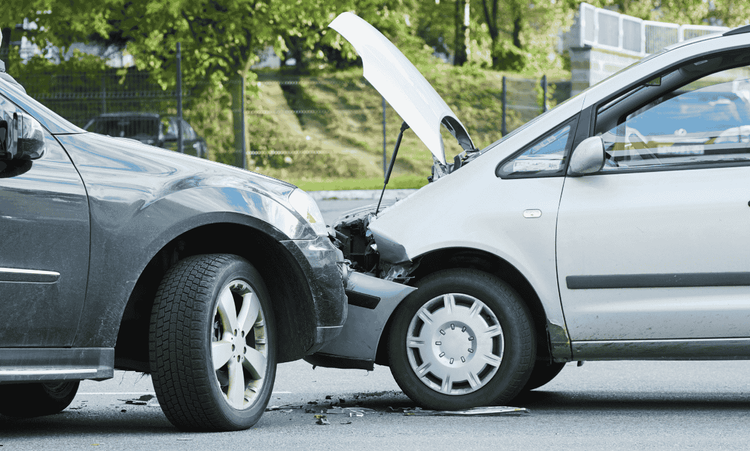Getting pulled over by a police officer is never a pleasant experience. Your heart races and your mind scrambles to figure out what you did wrong. Careless driving tickets are among the most common traffic violations issued today. They carry significant consequences that many drivers don't fully understand until too late.
Consequences of a Careless Driving Ticket

The aftermath of getting a careless driving ticket extends far beyond the initial traffic stop. Let's look at what you might face.
Financial Penalties and Fines
Careless driving tickets come with immediate financial costs. Depending on your state, fines typically range from $100 to $500. Some jurisdictions impose additional court fees that can double the financial burden.
These fines increase for subsequent offenses within a specific time period. In Colorado, for example, a second careless driving offense within a 12-month period can result in penalties up to $1,000. The financial impact hits immediately and can strain your budget.
Points on Your License
Most states operate on a point system for traffic violations. Careless driving typically adds between 2-6 points to your driving record. These points can lead to license suspension if you accumulate too many quickly.
In states like Florida, a careless driving conviction adds 4 points to your license. Accumulating 12 points in 12 months results in a 30-day suspension. The points usually remain on your record for 3-5 years, affecting you long after the incident.
Potential Jail Time
In more serious cases, careless driving can result in jail time. This usually happens when the behavior causes an accident with injuries. First offenses rarely result in jail sentences unless extraordinary circumstances exist.
However, repeat offenders may face up to 90 days in jail in many jurisdictions. The prospect of jail time makes careless driving charges much more serious than simple traffic tickets. Courts take repeated patterns of irresponsible driving very seriously.
How Careless Driving Differs from Reckless Driving
Many people confuse careless driving with reckless driving. The distinction matters because the penalties differ significantly. Careless driving involves negligence or inattention behind the wheel, while reckless driving involves willful disregard for safety.
Careless driving is usually classified as a minor traffic violation or civil infraction. Reckless driving, by contrast, is typically considered a criminal misdemeanor. The intent behind the action creates this critical difference in legal treatment.
For example, someone can be charged with reckless driving if they deliberately drive 30 mph over the speed limit while weaving through traffic. This conscious choice to endanger others elevates the offense beyond careless driving.
A careless driver might drift between lanes while distracted by their phone. A reckless driver intentionally speeds through a school zone despite seeing children nearby. The first shows a lack of proper attention, while the second shows a conscious decision to behave dangerously.
The penalties reflect this difference. Reckless driving often carries mandatory license suspension, higher fines, and a greater likelihood of jail time. Careless driving penalties are generally less severe but still significant.
Common Situations Leading to Careless Driving Charges
Several common behaviors typically lead to careless driving citations. Understanding these can help you avoid similar charges.
- Distracted driving: Using your phone, eating, or focusing on passengers instead of the road qualifies as careless. Law enforcement officers specifically watch for drivers looking down at devices.
- Failing to adjust to weather conditions: Driving the posted speed limit during heavy rain or snow can be careless. Road conditions demand adjustments to speed and following distance.
- Improper lane changes: Cutting off other drivers by changing lanes too closely demonstrates a lack of caution. Always signal and check blind spots before changing lanes.
- Excessive speed for conditions: Excessive speed for conditions, even below the posted limit, can trigger a careless driving charge. School zones, construction areas, and congested traffic require reduced speeds. The appropriate speed depends on actual conditions, not just posted limits.
- Following too closely (tailgating): Following too closely, or tailgating, commonly results in careless driving tickets. The safe following distance increases with speed. Always maintain at least a three-second gap between vehicles.
Impact on Driving Record and Insurance Rates
A careless driving ticket affects more than just your immediate finances. Its long-term consequences can prove even more costly.
Long-Term Effects on Your Driving Record

Careless driving convictions typically remain on your driving record for 3-5 years. During this period, they affect everything from employment opportunities to insurance rates. Some employers check driving records before hiring, especially for jobs involving driving.
Your driving record follows you across state lines through interstate compacts. Moving to a new state won't erase a careless driving conviction. The interstate driver's license compact ensures violations transfer between participating states.
Commercial drivers face even more serious consequences. A careless driving ticket can jeopardize a commercial driver's license (CDL), and professional drivers may sometimes lose their livelihoods over a single conviction.
Insurance Premium Increases
Insurance companies view careless driving as a red flag. Expect your premiums to increase by 20-50% after a conviction. This increase often lasts for three years or more.
After careless driving tickets, clients face insurance increases exceeding $1,000 yearly. The total cost over three years can exceed $3,000 in additional premiums, dwarfing the initial fine.
Some insurance providers may even drop your coverage entirely. High-risk drivers cost insurance companies more in potential claims, and finding new coverage after being dropped typically results in even higher rates.
Possible Defenses Against a Careless Driving Charge
Fighting a careless driving ticket isn't impossible. Several defense strategies may help reduce or dismiss the charges.
Challenging the officer's subjective judgment can work in some cases. Careless driving laws often use vague language about "reasonable" care. What seems careless to an officer might appear reasonable to a judge.
Proving that an emergency situation forced your driving behavior may provide a complete defense. For example, your actions might be justified if you swerved to avoid hitting an animal or pedestrian. Medical emergencies can also justify otherwise careless driving.
Demonstrating that road conditions or vehicle malfunctions caused the incident can help. A sudden tire blowout might cause lane swerving that appears careless. Documenting road hazards or mechanical failures strengthens this defense.
Witness statements supporting your version of events carry substantial weight. Passengers or other drivers who observed the situation can provide crucial testimony. Their objective perspective may contradict the officer's observations.
Traffic attorneys often successfully negotiate careless driving charges down to lesser offenses. Minor violations like "failure to maintain lane" carry fewer points and lower insurance impacts. The investment in legal representation often pays for itself in reduced long-term costs.
Steps to Take After Receiving a Careless Driving Ticket
Knowing how to respond after receiving a careless driving ticket can minimize its impact. Follow these steps for the best outcome.
Document Everything at the Scene
Take photos of the road conditions, traffic signals, and relevant factors. Weather conditions, construction zones, or unusual road features might become important evidence. Your memory will fade, but photographs persist.
Note the officer's name, badge number, and specific allegations. The details matter when challenging the ticket later. If it isn't clear, ask the officer what specific behavior constituted careless driving.
Collect contact information from any witnesses at the scene. Their observations might contradict the officer's account. Neutral third parties make particularly compelling witnesses in court.
Consult with a Traffic Attorney
Traffic lawyers specialize in fighting tickets like careless driving citations. Their expertise often leads to reduced charges or dismissed tickets. The consultation fee typically costs less than the long-term consequences of a conviction.
Attorneys understand local courts and prosecutors. They know which arguments work with specific judges. This insider knowledge improves your chances of a favorable outcome.
Legal representation allows you to avoid appearing in court personally in many cases. This saves time and reduces stress. Your attorney can often negotiate on your behalf without your presence.
Consider Traffic School Options
Many jurisdictions offer traffic schools to reduce or eliminate points. Completing a defensive driving course shows good faith and responsibility. Some courts will dismiss tickets entirely after the course is completed.
Even if the court doesn't require it, voluntary completion might help with insurance. Some insurance companies offer discounts for defensive driving courses, which can offset some of the premium increases from the ticket.
Online traffic schools make completion convenient and affordable. Most courses take 4-8 hours and cost $20-$100. The investment pays dividends in reduced points and insurance benefits.
The Dangers and Problems Caused by Reckless Driving

Reckless driving creates serious public safety hazards that extend beyond the driver. Its consequences affect everyone on the road.
Injury accidents increase dramatically with reckless driving behaviors. Speeding alone contributed to 29% of all traffic fatalities in 2020. Combining speed with aggressive maneuvers multiplies the danger.
Property damage from reckless driving accidents costs billions annually. The economic impact extends to increased insurance rates for everyone. We all pay for reckless driving through higher premiums.
Emergency services stretch thin responding to preventable accidents. Police, fire, and medical resources diverted to reckless driving crashes become unavailable for other emergencies. The public cost exceeds the direct damage.
Families suffer long-term trauma from injuries and deaths caused by reckless drivers. The emotional cost can't be calculated in dollars. Lives change forever because of moments of poor judgment.
Conclusion
Careless driving tickets carry serious consequences that extend far beyond the initial fine. They impact your driving record, insurance rates, and potentially your freedom. Understanding what constitutes careless driving helps you avoid these charges.
If you receive a careless driving ticket, respond strategically rather than simply paying it. Document everything, consult an attorney, and explore defensive driving options. The right approach can minimize long-term damage.
Safe driving habits provide the best defense against careless driving charges. Stay focused, adjust to conditions, and maintain appropriate speeds and distances behind the wheel. Your attention behind the wheel protects your driving record and everyone's safety.
The distinction between careless and reckless driving matters legally, but both endanger lives. Practice conscientious driving to avoid legal, financial, and safety consequences from traffic violations. Your careful attention on the road benefits everyone.
Also Read: Why Do I Feel Heat on My Feet While Driving?




